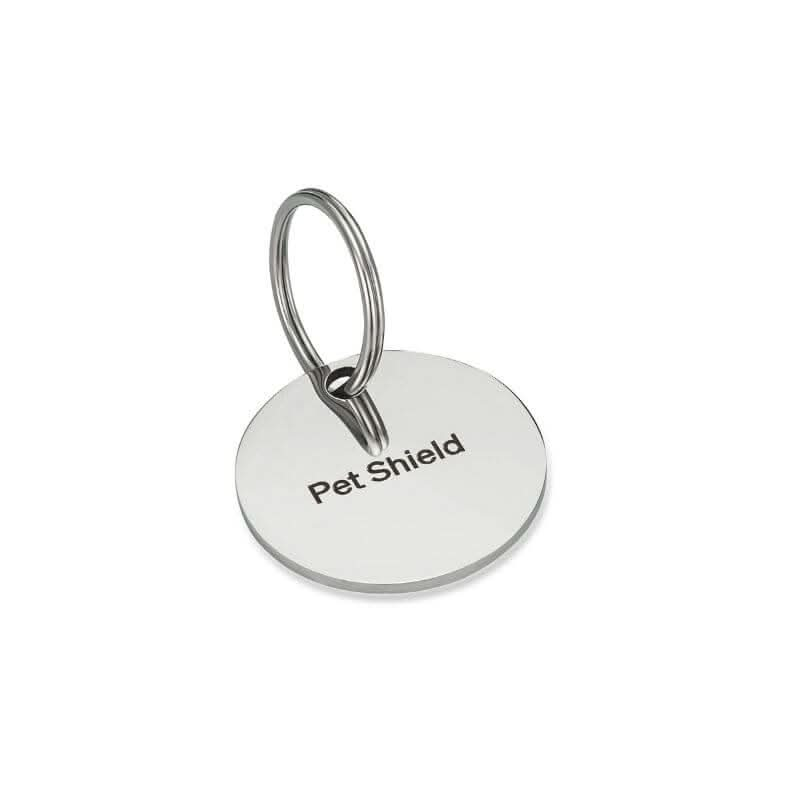Natural Flea Killer
As pet owners, we want the best for our furry friends, especially their health and comfort. Fleas, ticks, and pests can cause serious discomfort and even lead to health issues, but harsh chemicals can do more harm than good.
Understanding The Flea Life Cycle
To effectively combat fleas, it's crucial to understand their life cycle. This knowledge helps you choose the right natural flea killer and use it at the correct stages for maximum effectiveness. The flea life cycle consists of several stages, and natural flea killers can target these stages to disrupt the flea population and prevent future infestations. Here's an in-depth look at the flea life cycle and how natural flea killers work to break it.
Flea Life Cycle Stages
Egg Stage
Fleas begin their life cycle as eggs, which are laid on your pet or in the pet’s environment (such as bedding, carpets, or furniture). Flea eggs are small, white, and oval-shaped, making them difficult to see. These eggs fall off the pet and hatch in the surrounding environment.
Larva Stage
Once the eggs hatch, flea larvae emerge. These tiny larvae move around looking for food, typically consuming flea feces or organic debris. Flea larvae avoid light and tend to hide in dark, moist areas like carpets and cracks in the floorboards.
Pupa Stage
The pupa is the cocoon stage where the flea undergoes metamorphosis. Flea pupae are highly resistant to environmental conditions and can survive for weeks or months in their cocoon. They can remain dormant until they detect a host nearby (e.g., through vibrations, heat, or carbon dioxide).
Adult Flea Stage
Once the flea emerges from the pupa, it is fully grown and seeks a host to feed on. Adult fleas feed on the blood of their host, which can cause discomfort, itching, and the transmission of diseases. Adult fleas are the most noticeable stage since they live on your pet and can be seen jumping.
The Importance Of Targeting All Life Cycle Stages
Fleas are highly resilient, and treating only the adult fleas will not fully eradicate an infestation. If eggs, larvae, or pupae are left untreated, the fleas will continue to reproduce, leading to a recurring infestation.
Why Choose A Natural Flea Killer For Your Pet's Health?
The choices can be overwhelming when it comes to protecting your furry friends from pests like fleas, ticks, and mosquitoes. But if you're a pet owner who prioritizes health and well-being, opting for a natural flea killer is a decision that aligns with your values. Let's dive into why natural solutions are the way to go.
Safer For Your Pet
Traditional flea treatments often contain harsh chemicals that can harm your pet's health. These chemicals can lead to skin irritation, allergic reactions, and even more severe health issues over time. Natural flea killers, on the other hand, use gentle and non-toxic ingredients, ensuring your pet's safety without compromising effectiveness.
Better For Your Family
Pets are part of the family, and what affects them can impact everyone. Chemical-based flea treatments can leave residues that linger in your home, posing risks to children and other pets. By choosing a natural flea killer, you're protecting your pet and creating a safer environment for your entire family.
Environmentally Friendly
Chemical pesticides' impact extends beyond your home—they can harm the environment, affecting wildlife and ecosystems. Natural flea killers are typically biodegradable and less harmful to the planet, making them a more sustainable choice for conscientious pet owners.
Long-Term Health Benefits
Using natural flea killers can contribute to your pet's overall health in the long run. By avoiding exposure to harmful chemicals, you're helping to maintain your pet's immune system and overall well-being. This holistic approach to pest prevention can lead to a happier, healthier life for your furry companion.
Biopower Pet's Innovative Flea Prevention Solutions
Pet owners are increasingly turning to holistic and natural solutions to keep our furry friends safe from fleas, ticks, and mosquitoes. The following innovative products offer a chemical-free approach to pest prevention, leveraging cutting-edge technology to ensure the health and well-being of pets and their families.
Pet Shield Tag
The Pet Shield Tag is a groundbreaking solution that offers year-round protection against pests. Crafted from durable stainless steel, this tag emits bioenergetic frequencies that disrupt the nervous systems of fleas, ticks, and mosquitoes, effectively driving them away from pets.
The tag's waterproof design ensures it remains effective in all weather conditions, and its lack of batteries or the need for recharging makes it a convenient, set-and-forget option for pet owners. With the Pet Shield Tag, pets can enjoy a full year of protection without the risks associated with traditional chemical-based treatments.
Pet Shield Spray
The Pet Shield Spray is an essential tool in the fight against pests for immediate and on-the-go protection. This spray combines the natural repellent properties of spring water and Citronella essential oil, enhanced with bioresonance energy to create a powerful deterrent against fleas, ticks, and mosquitoes.
Safe for both pets and humans, the Pet Shield Spray offers peace of mind for pet owners who are concerned about exposing their families to harmful chemicals. Whether used alone or with the Pet Shield Tag, this spray protects against pest infestations.
Flea & Tick Bundle
For those seeking comprehensive protection, the Flea & Tick Bundle combines the long-term efficacy of the Pet Shield Tag with the immediate relief offered by the Pet Shield Spray. This bundle provides layered defense, safeguarding pets against pests from every angle. The flexibility of this solution allows pet owners to tailor their pest prevention strategy to their specific needs, offering peace of mind and the assurance of safety for their beloved companions.

How To Safely Use Natural Flea Killers On Your Pet
Using natural methods can be a game-changer when protecting your furry friends. But how do you ensure these natural solutions are effective and safe for your pet? Let's dive into the best practices for using natural flea killers.
Choose The Right Product
Not all natural flea killers are created equal. Look for products that are specifically designed for pets and have been tested for safety and efficacy. Ingredients like citronella, essential oils, and bioenergetic frequencies can be effective without the harsh chemicals found in traditional pest control products.
Follow The Instructions
It might sound obvious, but following the instructions on the product is crucial. Whether it's a spray or a tag, ensure you understand how to apply it correctly. For sprays, apply them in a well-ventilated area and avoid your pet's eyes, nose, and mouth. For tags, ensure they are securely attached to your pet's collar.
Monitor Your Pet's Reaction
After applying a natural flea killer, monitor your pet for signs of irritation or allergic reactions. While these products are generally safe, every pet is different. If you notice any unusual behavior or skin issues, discontinue use and consult your veterinarian.
Combine For Comprehensive Protection
For the best results, consider using multiple natural methods in tandem. A tag can provide long-term protection, while a spray can offer immediate relief. This layered approach can help ensure your pet stays flea-free year-round.
Regular Check-ups And Grooming
Even with the best natural flea killers, regular check-ups and grooming are essential. Brush your pet's fur regularly to remove fleas or ticks, and schedule routine visits to the vet to monitor your pet's overall health.
Natural Flea Killers Vs. Chemical Treatments: Which Is Better For Your Pet?
When protecting our furry friends from fleas, pet owners face a crucial decision: should they opt for natural remedies or chemical treatments? This choice isn't just about effectiveness; it's about the health and well-being of our pets.
Effectiveness And Speed
Chemical treatments are often lauded for their quick action against fleas. Products like topical solutions and oral medications can start killing fleas within hours, making them a go-to for pet owners amid an infestation. On the other hand, natural remedies might take longer to show results. Ingredients like essential oils and diatomaceous earth work more slowly, but they offer a gentler approach that can be just as effective over time.
Safety And Side Effects
The safety profile of chemical treatments can be a concern. Many contain pesticides that, while effective against fleas, can pose risks to pets, especially if they have underlying health issues or are particularly sensitive. Side effects can range from mild skin irritation to more severe reactions like neurological problems.¹
Natural flea killers, conversely, tend to be safer. Ingredients like neem oil, vinegar, and certain essential oils are less likely to cause adverse reactions, making them preferable for pet owners wary of chemicals.
Environmental Impact
Chemical treatments don't just affect your pet; they can also impact the environment. Runoff from these products can contaminate water sources and harm wildlife. On the other hand, natural flea killers are generally biodegradable and pose less risk to the ecosystem. Choosing natural options can be a more environmentally conscious decision, aligning with a holistic approach to pet care.
Long-Term Health
When considering long-term health, natural flea killers shine. Continuous exposure to chemical pesticides can lead to chronic health issues in pets, including potential links to cancer and organ damage. When used correctly, natural remedies avoid these long-term risks, promoting overall health and well-being. This makes them an attractive option for pet owners focused on holistic care.
Cost And Accessibility
Chemical treatments are often readily available at pet stores and can be more affordable upfront. However, the cost can add up over time, especially with monthly applications. Natural flea killers might require more frequent application but can be more cost-effective in the long run, especially if you opt for DIY solutions. Additionally, many natural ingredients are easily accessible, either in your home or at local stores.
How To Choose The Best Natural Flea Killer For Your Pet's Needs
Regarding safeguarding your furry friends from fleas, the market is flooded with options, each promising the ultimate solution. But how do you sift through the noise to find a natural flea killer that aligns with your pet's needs? Let's break it down.
Understand Your Pet's Lifestyle
First off, consider your pet's daily routine. Do they spend most of their time indoors or outdoor adventurers? Pets frequently exploring the great outdoors may require a more robust solution than their indoor counterparts. Look for products that offer continuous protection if your pet is often on the move.
Assess The Ingredients
Next, examine the ingredient list. Natural flea killers should be free from harsh chemicals and pesticides. Opt for products that harness the power of essential oils like citronella, which are known for their pest-repelling properties without the risk of toxicity. Ensure that the ingredients are effective and safe for your pet's health.
Evaluate The Method Of Application
Another critical factor is the method of application. Some pet owners prefer the convenience of a tag or collar that provides long-term protection with minimal effort. Others might lean towards sprays or shampoos for immediate relief. Choose a method that fits seamlessly into your routine and your pet's comfort level.
Consider The Duration Of Protection
Finally, consider how long you want the protection to last. Some natural flea killers offer short-term solutions that require frequent reapplication, while others provide extended protection for weeks or even months. Balancing effectiveness with convenience can help you choose the right product for your pet's needs.
Read also:
- Effective Natural Flea Repellent for Dogs: Preventing and Eliminating Fleas Safely
- Pawsitively Tick-Free: Natural Tick Repellent Solutions for Dogs and Cats
- Holistic Approaches to Managing Itch and Allergies in Pets
Sources:
- Rotkin-Ellman, M., Solomon, G., Minjares, M., & Epstein, H. (2009). Report or Issue Paper Title NRDC Issue Paper Poison on Pets II Toxic Chemicals in Flea and Tick Collars Contributing Authors. https://www.nrdc.org/sites/default/files/poisonsonpets.pdf
Frequently asked question
A natural flea killer is a pest prevention solution that uses non-toxic, chemical-free methods to repel and eliminate fleas. These products typically employ bioresonance technology or natural ingredients to disrupt the nervous systems of fleas, ticks, and mosquitoes, offering a safe and effective way to protect pets.
Yes, natural flea killers are generally safe for pets. They are designed to be non-toxic and free of chemicals, ensuring that pets can enjoy flea protection without harmful side effects. Many of these products are endorsed by veterinarians for their safety and efficacy.
Yes, natural flea killers are suitable for both cats and dogs. These products are often versatile solutions that provide year-round protection against fleas, ticks, and mosquitoes for all pets, regardless of breed or size.
The frequency of use depends on the specific product. Some natural flea killers, such as tags, can offer continuous protection for up to a year with minimal maintenance, while sprays may need to be applied as needed for on-the-spot protection. For optimal results, a combination of products can provide layered defense.
Yes, natural flea killers can be just as effective as chemical treatments without the risks associated with harsh pesticides. Many natural flea killers use bioresonance technology or natural ingredients to disrupt pests' nervous systems, offering an effective and safe alternative to traditional chemical methods.
Yes, natural flea killers are generally safe for puppies and kittens. These products are designed with gentle, chemical-free formulas to ensure that even the youngest pets can be protected from pests without any risk to their health.






